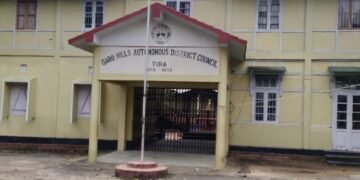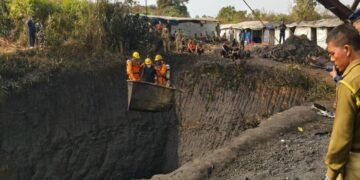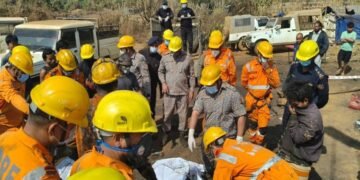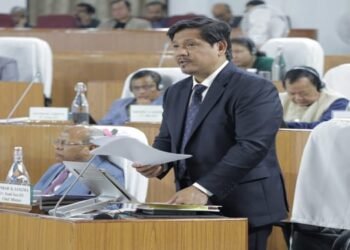Shillong (Meghalaya), Aug 27 : A one day round table was organised jointly by the Government of Meghalaya and the Centre of Budget and Policy Studies, Bengaluru was held on Friday , Aug 26 . It was attended by representatives from the department of Health and Family Welfare from the states of Meghalaya, Assam, Manipur, Mizoram and Nagaland.
The focus of the Roundtable Conference was to discuss the findings of a study conducted by the Centre for Budget and Policy Studies titled ‘Does the Northeast need a Public Health Cadre: A study of four Northeastern states’ which was conducted in the latter half of 2021.
The study took an in-depth look at Meghalaya, Assam, Manipur and Nagaland from the aspect of public health landscape, health budgets, current administrative structure and essential public health functions to understand whether these states would benefit from the presence of a public health cadre. CBPS’s second study looked at the current landscape of the Master’s in Public Health Programme in the country. The study was led by Director of Centre of Budget and Policy Studies, Bengaluru, Dr Jyotsna Jha, with the support of Thakur Foundation.
The CBPS study on feasibility of Public Health cadre for NE states pointed out the following– 1) that NE states performed better than the national average on MCH indicators. 2) There was high dependency on central funding for public health (through the NHM.) 3) Certain essential public health functions (EPHF) such as Research and innovations, assuring a competent PH workforce were almost nonexistent across all four states. 4) There was an acute shortage of trained public health professionals in all four states, and hence medical specialists filled PH posts.
Speaking at the conference, the Principal Health Secretary to the Government of Meghalaya, Sampath Kumar, IAS stated that adequate focus should be put on the need for blended programmes for public health among various states, in order to tackle the shortage of medical specialists in Northeast Indian States. He also enunciated the need to follow a three-dimensional approach to health with equal focus on Preventive Care, which encompasses Promotive care, Curative Care and Enabling Dimension. He added that before the COVID-19 pandemic, the focus of healthcare was mostly limited to curative care. The pandemic has put forth a realization that the health system means now to be reinforced with much greater capacity in public health. Proper investments should be made, both in terms of infrastructure as well as in terms of human resources to have the required skills for delivering public health programmes.
It may be mentioned that the Meghalaya Health Policy which came into effect in May 2021 ensures that the focus of health equally shifts to preventive care from just curative care, in order to bring about a healthy and productive population, while also focusing on creating an enabling dimension, by empowering communities to become producers of health services and not merely beneficiaries, such as through the newly effected institutions like the Village Health Councils (VHCs) in Meghalaya.
The Additional Secretary to the Government of Meghalaya, Ramkumar, IAS inaugurated the round table and emphasized that before embarking on the journey of creating a public health cadre, it is important for state to examine their public health system and arrive at a cadre structure that works best for them.
The participants from all five states undertook a group exercise to assess the status of the essential public health functions in each of the states. In the process of rating their state on the different essential public health functions (EPHFs) the participants were able to reflect on the current gaps and came up with probable solutions to improve these gaps. Hence through this exercise the participants were able to reflect on the fact that an in-depth understanding of the gaps in their public health system/functions is a pre-requisite for a public health cadre.
A presentation was also made on a study that mapped the Master’s in Public Health courses in India. From the study it was seen that there are currently 105 institutions offering MPH in India, however only 4 of these institutions are in the Northeast. Only 37% of institutions were public institutions. However, students were plagued with high fees (average 2.9 lakhs for private and 87,000 for public institutions), insufficient information on the course online and poor field immersions. There is also currently no accrediting agency for MPH in India. A brief presentation highlighting the contribution of IIPH-Shillong in public health education in the Northeast was also given during the Round Table session.









































